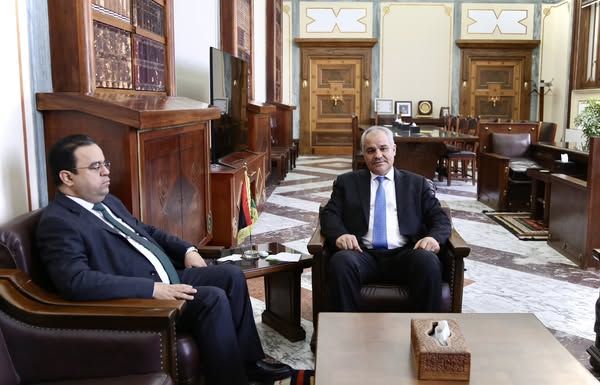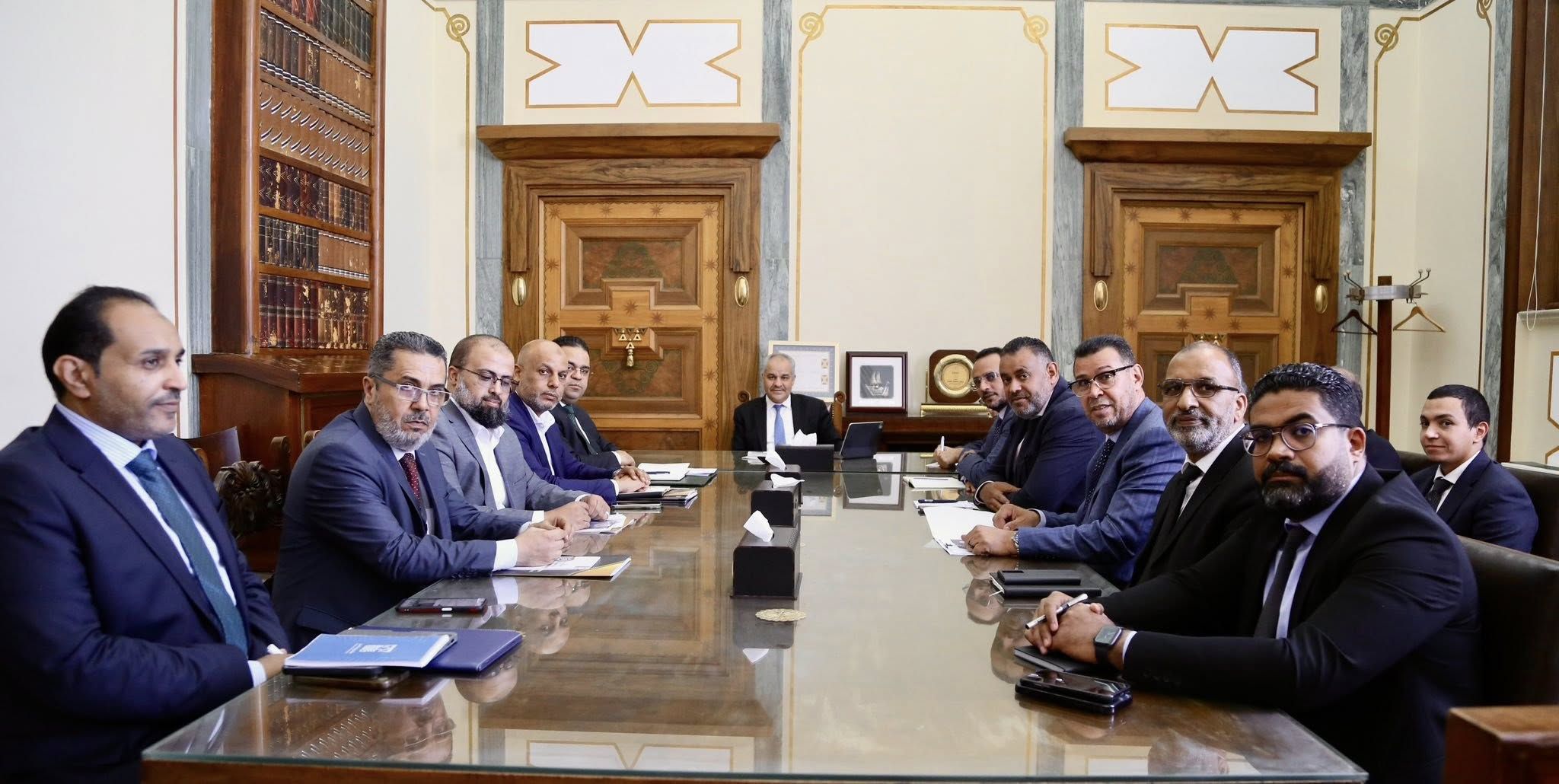Governor of the Central Bank of Libya meets with the Minister of Labor and Rehabilitation and the Minister of Education
Regulating the expatriate labor market and eliminating the shadow economy in Libya, along with the Central Bank’s efforts to achieve the vision of digital transformation, were the key topics of discussion during the meeting between H.E. Mr. Naji Mohammed Issa, Governor of the Central Bank of Libya, and Eng. Ali Abed Al-Ridha, Minister of Labor and Rehabilitation and Minister of Education, with the participation of directors of relevant departments from both sides, general managers of several commercial banks, and the General Manager of Moamalat Financial Services Company on Thursday, July 17, 2025.
The meeting addressed the Ministry of Labor and Rehabilitation’s efforts to document expatriate workers by requiring all foreign laborers to obtain legal work permits linked to a national data system. Discussions also included combating illegal employment and tightening oversight on establishments employing unlicensed workers.
It was agreed to form a joint working group between the Central Bank of Libya and the Ministry of Labor and Rehabilitation to design a system utilizing electronic platforms to track work permits and verify the identities of expatriate workers. The aim is to integrate these workers into the formal banking system, thereby stimulating the official economy. A national awareness campaign targeting employers and workers will also be launched to highlight the importance of legal employment and the risks associated with the informal economy. This is expected to enhance employment opportunities for Libyans, reduce dependency on foreign labor in certain sectors through training and recruitment, reform the financial system, and combat tax evasion and money laundering, all to curb the parallel economy.
Regarding the education sector, the attendees discussed the Central Bank’s efforts to promote electronic payment tools and move toward genuine digital transformation. The Governor had previously addressed the Minister on July 10, urging all entities under the Ministry of Education to adopt and implement approved electronic payment methods and to provide electronic points of sale (PoS) at their premises. It was agreed to begin providing PoS terminals to educational institutions and to offer full support to administrators of these institutions in utilizing various electronic payment methods.
In conclusion, the Governor commended the Minister’s cooperation and praised his efforts in advancing several key sectors such as labor and rehabilitation, civil service, and education.



